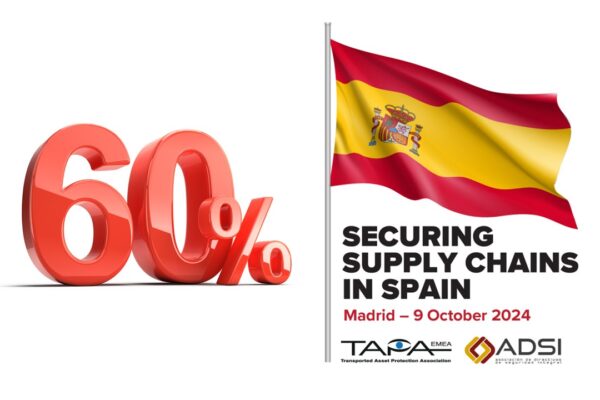
PMI Invests in TAPA EMEA Training Across Supply Chain and Manufacturing Facilities
The supply chain and security professionals at international tobacco company, Philip Morris International (PMI) embody the value of the TAPA Standards as part of their supply chain resilience programme.
In support of this, in recent weeks, PMI has invested in dedicated Facility Security Requirements (FSR) and Trucking Security Requirements (TSR) virtual trainings by TAPA EMEA for 48 security professionals from multiple countries. The training sessions, delivered by Markus Prinz, Senior Manager, Standards, Training & Certfication, and Panayiotis Laimos of TAPA EMEA’s Standards & Training Services team, were also supported by two webinar sessions to review the trainings and support the resulting examinations for participants.
Vigilant spoke to PMI’s Gino Laios, Global Senior Manager Security Programs – Supply Chain & Manufacturing, and Herbert Anwander, Manager – Supply Chain Security Program, to find out more about the decision to opt for a large-scale, dedicated approach to meeting TAPA EMEA’s training requirements.
“This is the first time we have organised exclusive training from the perspective of our global supply chain security programme, and we decided to do so for various compelling reasons; levelling the skillset and capabilities of our team, being a business partner for both internal and external stakeholders, leveraging knowledge that will continue to drive our values and mission, and as a function and programme on protecting what matters. Also, enabling participants to ask questions which were relevant to all our PMI colleagues and being able to share some PMI specific-insights on thefts and priorities also made the trainings especially relevant to our business,” Herbert said.
The online trainings were organised to support the new, updated versions of the Association’s FSR and TSR Standards, which came into force in September.
Gino added: “PMI’s Supply Chain Security Standards are designed using TAPA’s security requirements as their ‘backbone’. This company standard is embedded in contracts with our logistics services partners, and, depending on certain factors, can be mandatory or recommendations. With the introduction of the FSR and TSR 2023 Standards, these will become more mandatory requirements rather than just recommendations. Plus, we will use the FSR Standard to assess our own manufacturing facilities as we continually look for ways to strenghthen our facility security.”
He also expects to see other major buyers of logistics services like PMI choosing dedicated TAPA Standards’ trainings and inviting their Logistics Service Providers to participate to increase their awareness and understanding of the requirements. “We, as PMI, believe this is the right way to do it, by also making sure that the people responsible in the company understand the what, the why but, mostly, the how part when it comes to security. We also plan to start enrolling colleagues from other departments into these security trainings, including supply chain and procurement, as there is a definite benefit in having knowledge spread around the organisation.
“When you have recognised industry Standards, this is not only the way forward but it is a way we can transform an industry. Security standards are built also for challenges that may not be in sight at this point but which are evolving in the background.
“The use of the TAPA Standards as the basis for our requirements is very useful as they are highly recognised within the EMEA region and there are many certified/compliant LSPs using them. They are a good starting point on which we can add our specific additional requirements. Going this way, alongside a strong audit, has helped us to significantly decrease our number of supply chain losses in recent years.”
Dedicated TAPA trainings will now form part of PMI’s multi-year supply chain security strategy, which the company also sees as a way to stregthen its manufacturing security.
“This initiative of enrolling our teams in TAPA trainings brings value to our business. It enables our supply chain colleagues to focus on their craft, whilst we have the programme to manage risk and to build resilience around PMI’s end-to-end supply chain. We especially wish to thank Markus and Pana, and the entire TAPA Training Team for putting their hearts and minds into setting up the dedicated sessions because the organisation and delivery by TAPA EMEA was outstanding,” Herbert stated.

















